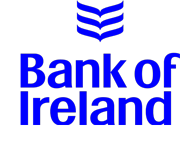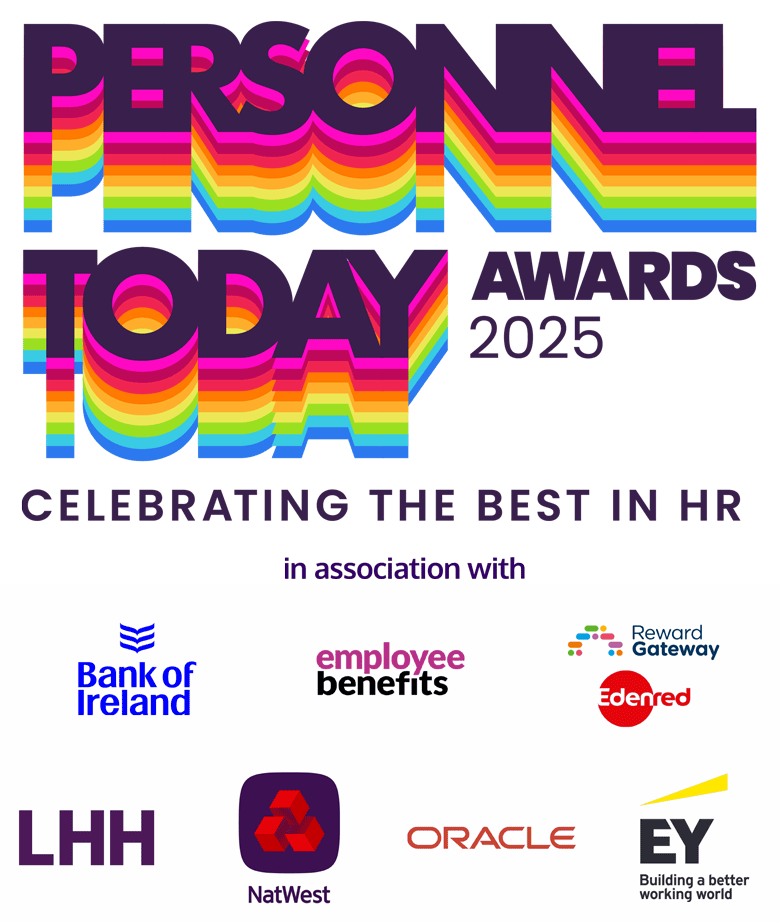 This category celebrates the work of organisations that have recognised the vital role they can play in helping employees improve their physical and mental health. The judges were enormously impressed by the insight and innovation demonstrated by each of the shortlisted teams dedicated to improving wellbeing in a category sponsored by Bank of Ireland.
This category celebrates the work of organisations that have recognised the vital role they can play in helping employees improve their physical and mental health. The judges were enormously impressed by the insight and innovation demonstrated by each of the shortlisted teams dedicated to improving wellbeing in a category sponsored by Bank of Ireland.
Central Co-op
Central Co-op, employing over 6,400 colleagues across retail, funeral and support services, identified through its 2023 staff survey that wellbeing support required improvement. Feedback showed that while colleagues cared about one another, many were unclear where to access help, and fewer were checking in on peers. With wellbeing needs varying across retail, funeral care and support centre roles, the organisation recognised the need for a comprehensive, flexible framework.
In response, it launched the We’ve Got You campaign, following 18 months of consultation and co-creation. The campaign was hosted on the organisation’s Difference Maker Hub and provided a digital wellbeing centre accessible 24/7. Support was structured around mental, physical and work-life balance pillars, including counselling, mental health first aiders, annual health checks, GP access, flexible working, menopause and fertility support, and financial wellbeing tools. To aid accessibility, wellbeing flowcharts guided colleagues to the right resources.
Leadership engagement was central, with wellbeing training and webinars delivered to managers. Alongside the campaign, a series of inclusive policies were introduced covering domestic abuse, pregnancy loss, menopause, trans and non-binary inclusion, and bullying and harassment. Communication was strengthened through Wellbeing Wednesday updates and society-wide campaigns.
The outcomes have been measurable: Gallup engagement scores and survey responses around management support improved; voluntary turnover fell by almost a third; sickness absence reduced significantly; and 90% of colleagues registered on the hub. Training participation was strong, and uptake of policies demonstrated a tangible impact. The initiative has reshaped Central Co-op’s culture, embedding wellbeing as a core element of its employee experience.
Hitachi Rail
Hitachi Rail identified in 2023 that its wellbeing approach needed more structure, visibility and consistency. Activity was ad hoc and largely dependent on the HR team, creating uneven support across its 2,500-strong workforce operating at over 20 UK sites. Recognising the link between employee wellbeing and business performance, the company launched the BeWell framework in January 2023, structured around mental health, physical health, financial health, inclusion, and growth.
To embed the framework, a national network of wellbeing champions was created, including BeWell leads, mental health first aiders, menopause champions and men’s health advocates known as “Manbassadors”. These roles enabled initiatives to be tailored to local contexts, particularly for colleagues without regular computer access. A BeWell roadshow raised awareness and expanded the champion network.
Campaigns have since addressed key health themes, shaped by survey data, health checks and employee feedback. Initiatives include partnerships with Andy’s Man Club for male mental health, Climate Games linking exercise with sustainability, pension awareness sessions, cancer awareness, and menopause education. Local champions also launched site-specific activities such as wellbeing walks, quiet rooms, and stoma-friendly facilities.
The programme has been underpinned by broad employee benefits including counselling, virtual GP access, health checks and financial education. Measured outcomes show engagement survey improvements across stress management, overall wellbeing and perceptions of employer care. The framework has created a consistent, inclusive and evidence-based approach to wellbeing across the organisation.
IRIS Software Group
IRIS, employing more than 3,000 people across eight countries, identified in 2022 that its wellbeing approach should be given a higher priority. The results of its Great Place to Work survey suggest that wellbeing could be more actively promoted, and feedback suggested support could be more visible in practice. With a growing, diverse workforce, the company recognised the need for a renewed strategy shaped by employee input.
In early 2024, Iris introduced a global wellbeing framework based on four pillars: myHealth, myMoney, myWorld and myPlace, addressing physical, mental, financial and social wellbeing. Initiatives were supported by consistent communication through newsletters and leadership messaging, underlining organisational commitment.
The myHealth pillar introduced new programmes in response to employee feedback, including a global IRIS Olympics to promote social exercise, affordable cancer screening services, and a partnership with Peppy providing menopause and men’s health support. Uptake of the new health app was strong, and there were many enrolments in the cancer screening service in its first year. Webinars covering wellbeing topics such as sleep, fertility and resilience also attracted engagement.
The myPlace pillar emphasised psychological safety and professional growth, supported by training modules designed to equip managers and employees with tools to sustain wellbeing and productivity.
Results include a rise in Iris’s wellbeing score to a point above the technology sector benchmark, a 15% reduction in sickness absence due to mental health, and a 5% fall in voluntary attrition, and increased utilisation of existing benefits such as EAPs and wellbeing events.
Leeds College of Building
Leeds College of Building (LCB), considered the UK’s only specialist construction college, employs 378 staff across predominantly onsite roles. Rising sickness absence in 2021-22, with a third linked to stress and mental health, highlighted a pressing need for improved support. Staff surveys showed pride in the organisation, but indicated concerns about workload, wellbeing and retention, prompting the college to establish a more proactive and inclusive wellbeing strategy.
A wellbeing committee was created, bringing together staff from across departments to design initiatives that were accessible and relevant. Activities included wellbeing weeks with fitness, creative and financial wellbeing sessions, as well as the introduction of dedicated wellbeing days, giving staff time to pursue college-organised or personal activities. Peer recognition was promoted through the LCB Shout Out, now a monthly feature. Internal collaboration allowed low-cost, engaging activities to be delivered by staff expertise, reinforcing a sense of community.
The college also revised absence management, moving responsibility for maintaining contact and return-to-work interviews to line managers, supporting more personal conversations. Access to occupational health referrals increased significantly, while a professional coaching programme offered CBT-based support in areas such as time management and resilience. Teaching hours were reduced to ease workloads, and a new aspiring managers programme incorporated wellbeing training.
The outcomes have been positive. Absence fell significantly in 2023-24, with long-term absence halved. Staff survey results improved, with all now proud to work at the college, and Ofsted has recognised a “supportive and developmental culture”.
PureGym
PureGym, the fourth largest gym operator globally, employs more than 7,000 colleagues and serves more than two million members across six countries. As the business expanded rapidly, it became clear that while employee wellbeing was supported through initiatives such as flexible working, sabbaticals and free memberships, a more comprehensive strategy was required. Rising feedback from staff surveys highlighted improvements could be made around work-life balance, mental health support and physical wellbeing, signalling the need for a renewed approach.
In response, PureGym developed a structured wellbeing programme, building on four pillars: flexibility, mental, financial and physical health. A central initiative, Wellness with Oli Patrick, was first piloted with the board and senior leadership team in 2024 through the Energy to Perform course, embedding wellbeing awareness at the top of the organisation. The programme was then expanded through video and podcast sessions covering nutrition, sleep, stress, movement and mindset, translated into four languages to reach all colleagues internationally.
Further measures included summer flexible working hours, trialled in the UK and reintroduced in 2025, and the exploration of dedicated weekly time for staff to focus on physical activity.
These initiatives have had a measurable impact. Staff survey scores on whether wellbeing is prioritised have risen in the UK, Denmark and the US. Retention has also improved, with rates rising by 4.1% following the introduction of sabbaticals and flexible hours. Feedback from senior leaders also reported tangible personal benefits, from improved sleep to healthier lifestyle habits.
South Western Railway – social wellbeing
South Western Railway (SWR) employs a large and diverse workforce and identified social wellbeing as a central factor in creating a resilient, engaged and collaborative culture. Research showed that strong workplace connections support mental health, resilience and performance, while national surveys highlighted the risk of isolation. The company therefore placed social wellbeing at the heart of its wellbeing strategy, recognising its influence on engagement, productivity and retention.
Over the past year, SWR has introduced a range of initiatives designed to strengthen social connections across the network. These include six-monthly five-a-side football tournaments and monthly guided walks around key offices, encouraging both physical activity and informal relationship-building. The Move for 30 Active Trees initiative links everyday movement with tree planting, combining health and sustainability outcomes.
To build lasting communities, centrally funded social groups have been established. Examples include a board games group, a community choir and a weekend walking group, alongside depot football teams, netball teams and mixed-gender sports and social events. Funding supports these groups with resources and logistics, ensuring they remain inclusive and accessible.
The impact has been clear. Hundreds of colleagues have participated in activities, creating new friendships and strengthening cross-team collaboration. Staff surveys and feedback indicate improved morale, stronger connections and a greater sense of belonging. Benefits extend beyond social engagement, with participants reporting enhanced mental health, resilience and physical wellbeing, contributing to higher engagement, improved collaboration and stronger retention across the organisation.
South Western Railway – men’s mental health
Male employees, particularly in operational roles such as drivers, engineers and depot staff, were not engaging with existing wellbeing resources.
Feedback suggested many were facing stress, anxiety, bereavement and pressures outside of work, but felt unable to speak openly due to cultural stigma and dispersed working patterns. Addressing this gap became a priority in order to promote psychological safety and improve engagement.
In early 2024, SWR introduced the male mental health working group as a peer-led, grassroots initiative. Its purpose was to reduce stigma, provide safe forums for discussion, and encourage proactive approaches to mental health. Activities included monthly depot and office meet-ups, confidential drop-in sessions, and virtual access for shift-based staff. Facilitators trained as mental health first aiders guided conversations through open dialogue rather than prescriptive solutions. Additional support came from a quarterly Men Talk newsletter, an online discussion board, and guest speakers with lived experience. Senior leaders demonstrated allyship by sharing their own experiences, reinforcing a culture of openness.
The initiative has delivered measurable benefits. Participation has grown steadily, with positive feedback from attendees and reported improvements in confidence to speak more widely about mental health. Longer-term absence linked to stress has declined in at least one operational function, and the model has inspired new peer networks across the organisation. Externally, the group has attracted interest from the Rail Safety and Standards Board, highlighting its wider relevance to the sector.
Suez Recycling and Recovery
Suez Recycling and Recovery UK employs drivers, engineers, recycling operatives and corporate staff, many of whom do not work at desks or have regular access to digital resources. Internal analysis identified cardiac health and cancer as the most significant wellbeing risks across the workforce. In response, the company sought a practical, inclusive approach that would reach all employees and strengthen confidence in responding to health emergencies.
In February 2025, Suez launched HeartSmart in partnership with the British Heart Foundation. The initiative provided CPR training through the BHF RevivR app, enabling staff to complete a 15-minute course using only a smartphone and a cushion, making it accessible to shift-based and remote teams. Alongside this, 230 defibrillators were installed across sites, with guidance and training to support effective use. Many of these devices were positioned to be publicly accessible.
Supporting materials, such as HeartSmart Huddle Cards, encouraged line managers to lead open discussions about heart health, wellbeing and lifestyle choices. Engagement activities, including awareness days, quizzes and blood pressure roadshows, reinforced key messages and helped normalise conversations about health. The initiative was integrated with the company’s inclusion and diversity strategy to address health inequalities and broaden reach.
The programme has seen more than 1,200 employees completing CPR training, 17 successful defibrillator deployments within the first year, and stronger confidence among managers in responding to incidents. Surveys show improved wellbeing engagement, with staff recognition awards highlighting life-saving actions. The initiative is now embedded within SUEZ’s broader Wellness for All strategy.
Book your table for the Personnel Today Awards 2025
Sign up to our weekly round-up of HR news and guidance
Receive the Personnel Today Direct e-newsletter every Wednesday


